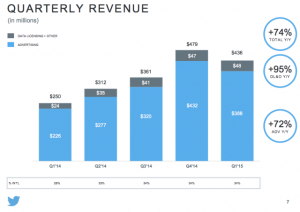No matter how well you run your business, you are never immune to a potential financial crisis, either within your own company or in the general economy. That’s why it makes sense to plan for the worst as you hope for the best. Here are some tips to help you navigate through a financial crisis:
- Know what to do if you suddenly need funding. A cash crunch can occur for many reasons, including a lull in sales, good sales but thin profits, poor cash management and forecasting, and suddenly higher costs. You should establish a relationship with a commercial lender, like IOU Financial, so that you can quickly arrange for a loan when you need it. There are many ways to boost your company’s credit, see here for a rundown of available avenues.
- Streamline your operations by improving cash collections and extending payment distributions. You’ll find many vendors will accommodate you when you’re in a crisis, because it’s in their interests for you to remain a viable customer for their offerings.
- Check your margins. If sales are good but profits are low, then expenses are out of control. If you don’t have one, institute a purchasing policy and system to buy your supplies and inventory from the right vendors at the most competitive prices.
- Manage your budget. You do have a budget, don’t you? It should include a forecast of cash flows so that you can identify and prepare for upcoming shortages. By comparing estimates with actuals, you’ll know where you are spending too much and can take steps to fix the problem. A budget is really a collection of sub-budgets, covering areas such as sales, operations, and cash. Online apps are available to help you calculate and manage your cash flows – take advantage of these, especially if you don’t have a financial expert on retainer.
- Boost sales. If your sales volume is heading downward, perk it up with advertising, promotions, sales and specials. However, discounting hurts profit margins, so a better strategy is to find ways to upsell and cross-sell to your customers, offering them added value for a modest additional cost. One way to gain visibility is to participate in community events and charitable functions. Re-evaluate your offerings and get rid of unprofitable goods or services.
- Sell assets. Another quick way to raise cash is to factor your accounts receivable and auction your inventory. These solutions are not as good as obtaining a business loan, because they can have long-lasting negative effects on your image and your customer relations. Nonetheless, it’s a tool that works and it’s there for you to use. If you have multiple locations, consider closing some of them.
- Hire a CPA. If you find yourself repeatedly running short of cash, perhaps you’re not managing your finances well. Hire a CPA to consult with you and prepare monthly statements so that you have a better idea of what problems your business is facing. It wouldn’t hurt to become more financially literate, if that’s a problem.
- If your company is small- to mid-sized and you don’t have a CFO, you can rent CFO services to strategically help by establishing financial discipline and performing analysis and planning with regard to your long-term financial needs.
- Consolidate and reduce your debt. If you owe money to many creditors inside and outside your business, get a consolidation loan so that you can manage your debt effectively and hopefully pay it off faster. IOU Financial provides daily automatic repayment to take the pain and confusion out of managing your debt.
- If you have a lot of late-paying customers, raise your credit requirements and tighten up your credit terms. That means you need to communicate and enforce late payment penalties.
As you can see, the common denominator of all these problems is cash, or lack thereof. Your ability to borrow and raise cash may be all that keeps you afloat during a financial crisis, so be prepared and work out a plan for when bad things happen to good businesses.
Business & Finance Articles on Business 2 Community(55)
Report Post





